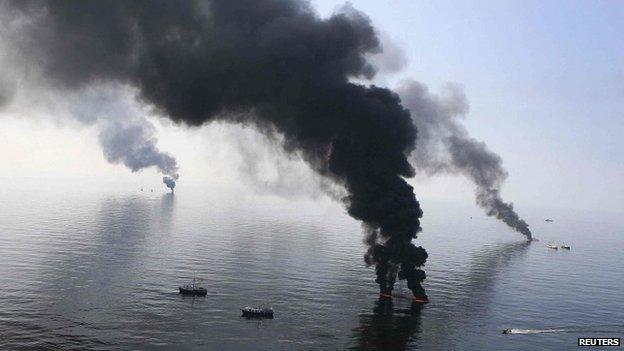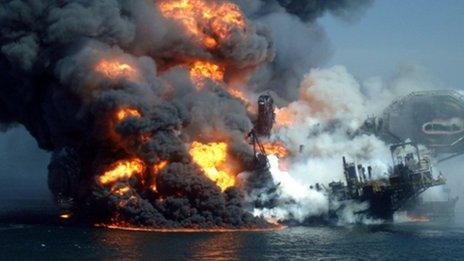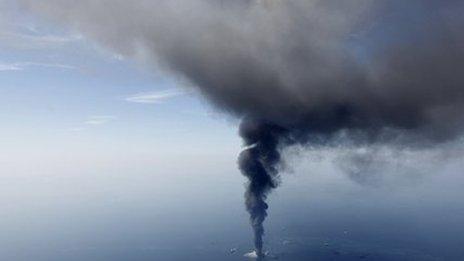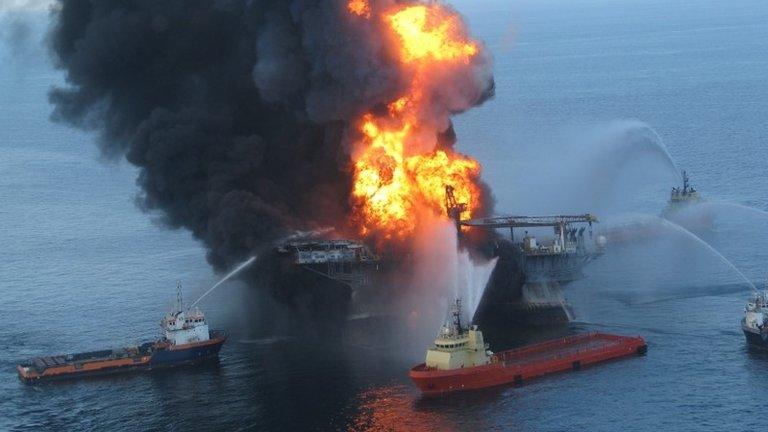BP loses latest US oil spill appeal
- Published

BP has set aside around $43bn to compensate victims of the Gulf of Mexico oil spill
The US Supreme Court has rejected oil giant BP's legal challenge to a compensation deal over the 2010 Gulf of Mexico oil spill.
It means BP will have to make the payments that stem from the explosion of the Deepwater Horizon oil rig.
BP argued that the deal meant it could fall prey to inflated or bogus compensation claims.
BP agreed to the compensation deal in 2012, but argues it has been misinterpreted.
Shares in BP fell 1.7% in London on Monday.
BP asked the Supreme Court to consider whether people and businesses seeking payments under the settlement included individuals who had not actually suffered any injury as a result of the oil spill.
The Supreme Court's rejection of this appeal by BP is the latest in a series of setbacks for the oil firm.
BP is trying to limit payments over the environmental disaster, which claimed the lives of 11 people and became the largest US offshore oil spill in history.
The settlement agreement has no cap, but BP initially estimated that it would pay roughly $7.8bn (£6.1bn) to compensate victims.
It now says it can no longer give a reliable estimate for how much the deal will cost.
BP has already paid out $2.3bn in so-called business economic loss claims out of a total of $4.25bn in compensation claims to individuals and businesses, according to Patrick Juneau, the administrator appointed by the courts to handle claims.
The settlement process is also separate from other court proceedings relating to the spill, including environmental and criminal penalties.
BP has set aside $43bn to resolve all claims.
In September, a US judge ruled BP was "grossly negligent" in the lead-up to the 2010 oil spill.
The New Orleans judge Carl Barbier also found BP subcontractors Transocean and Halliburton "negligent".
- Published4 September 2014

- Published12 January 2014

- Published4 March 2014
